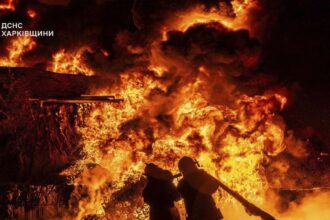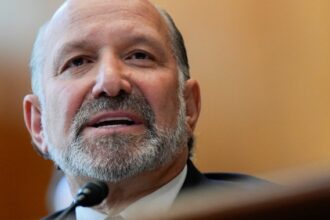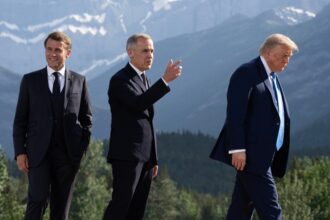In a powerful rebuke to Venezuela’s authoritarian regime, opposition leader María Corina Machado has been awarded the 2024 Nobel Peace Prize, recognizing her unwavering commitment to democratic principles despite facing relentless persecution from President Nicolás Maduro’s government.
The Norwegian Nobel Committee announced their decision Friday morning, praising Machado for her “extraordinary courage in defending human rights, free elections, and democratic governance in Venezuela amid severe personal risk and governmental intimidation.”
Machado, who emerged as the clear winner in Venezuela’s opposition primary last year with over 90% of the vote, has become the face of resistance against Maduro’s increasingly repressive rule. Despite being barred from running in July’s presidential election through what international observers called “politically motivated disqualification,” Machado continued advocating for democratic change.
“This recognition belongs not to me, but to every Venezuelan fighting for their right to live in a free and democratic country,” Machado said in her first statement after the announcement. “It shines a light on our struggle when the regime works tirelessly to keep us in darkness.”
The award comes at a critical moment for Venezuela, where post-election tensions have escalated dramatically. After July’s disputed presidential election, which the government claims Maduro won, widespread protests erupted across the country. International electoral experts and numerous democratic nations have refused to recognize the results, citing credible evidence of electoral fraud.
Venezuelan security forces have responded with brutal crackdowns, arresting over 2,000 political dissidents, including members of Machado’s campaign team. The United Nations Human Rights Office has documented numerous cases of torture, arbitrary detention, and excessive force against peaceful protesters.
“Machado’s selection represents the committee’s recognition that defending democracy against authoritarianism constitutes vital peacemaking work,” said Carlos Vecchio, former Venezuelan opposition diplomat. “This isn’t just about Venezuela—it’s about standing firm against the global erosion of democratic norms.”
The award carries significant economic implications for Venezuela as well. The country’s economy has collapsed under Maduro’s leadership, with hyperinflation, widespread shortages of essential goods, and plummeting oil production driving nearly 8 million Venezuelans to flee the country—creating one of the world’s largest refugee crises.
“This Nobel Prize is more than symbolic—it places additional international pressure on the Maduro regime at a time when Venezuela desperately needs economic reforms and restoration of democratic institutions,” explained Maria Puerta Riera, professor of political science at Valencia College.
The Nobel Committee’s decision marks only the second time a Venezuelan has received the prestigious award. The prize includes a gold medal and 11 million Swedish kronor (approximately $1.1 million USD).
Maduro’s government swiftly condemned the decision, with Information Minister Freddy Ñáñez calling it “another example of Western imperialism” and claiming the Nobel Committee had “abandoned any pretense of neutrality by rewarding terrorists masquerading as politicians.”
Despite the regime’s efforts to silence her voice, Machado continues organizing resistance from within Venezuela, refusing exile despite serious threats to her safety. Her movement has maintained extraordinary discipline in pursuing nonviolent resistance strategies despite severe provocation.
As Venezuela stands at a crossroads between continued authoritarianism and potential democratic renewal, one question remains central: Will international recognition through the Nobel Peace Prize finally create sufficient pressure to restore legitimate democratic processes in a country that once stood among Latin America’s most prosperous nations?







